click box to play audio

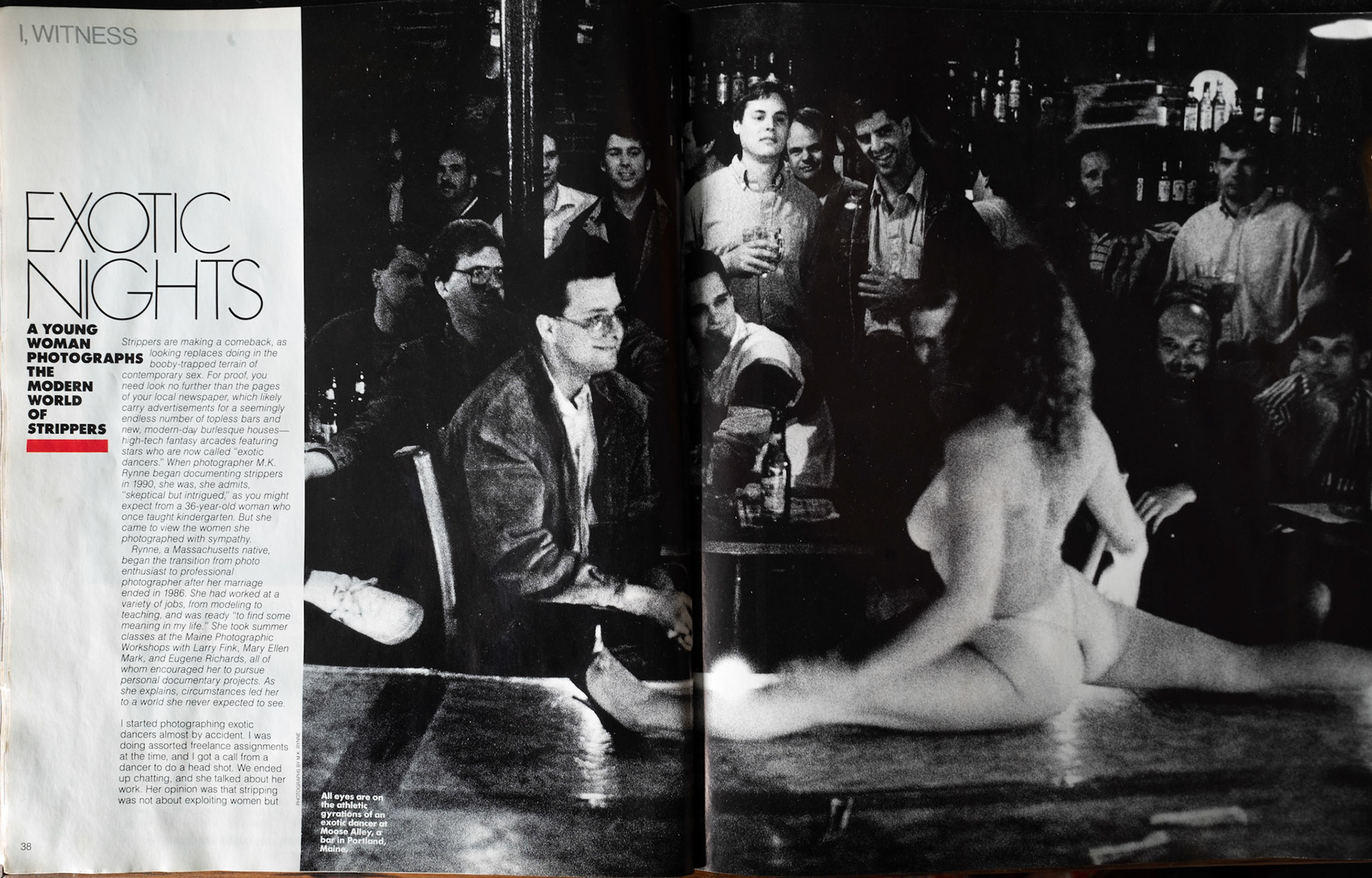
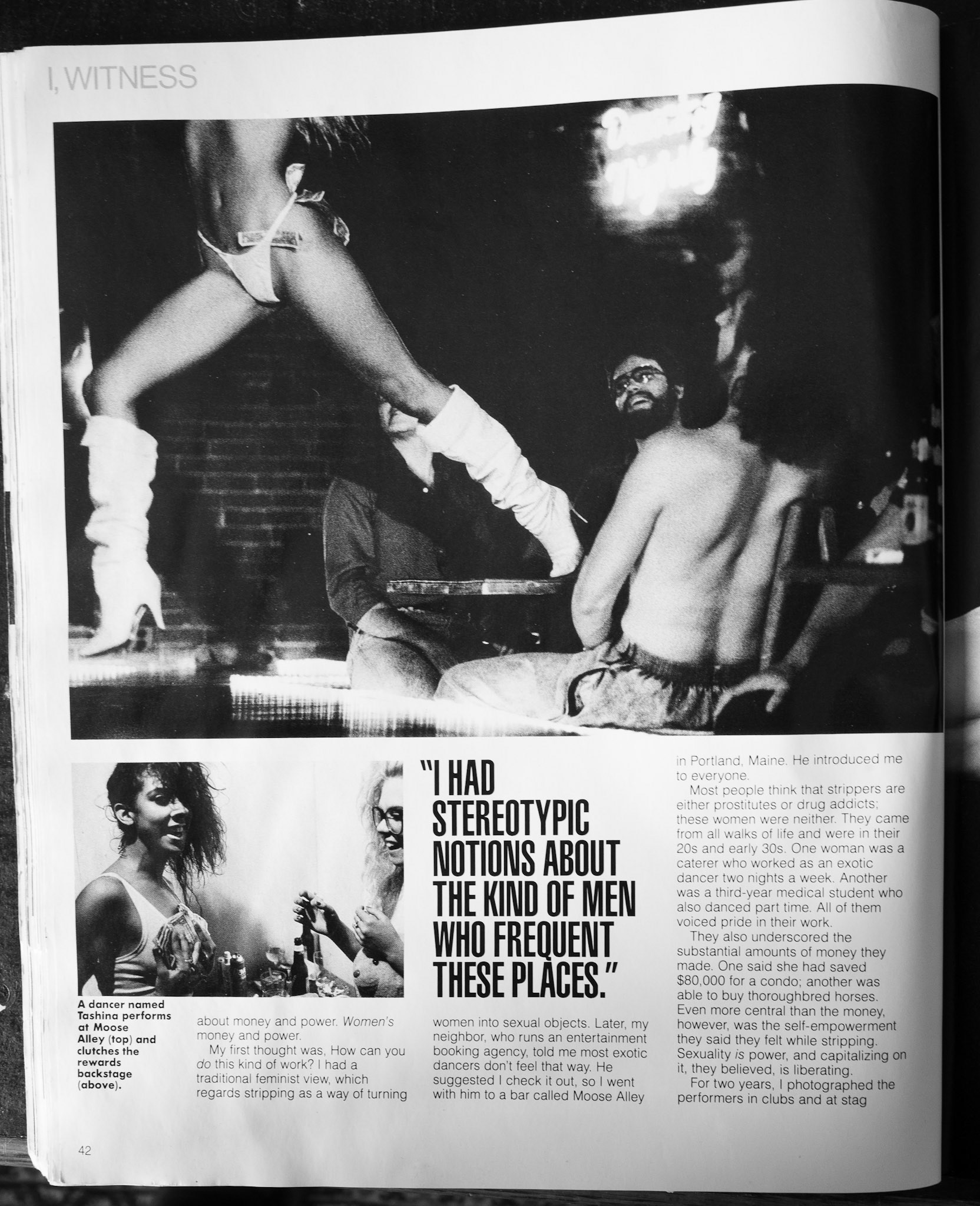
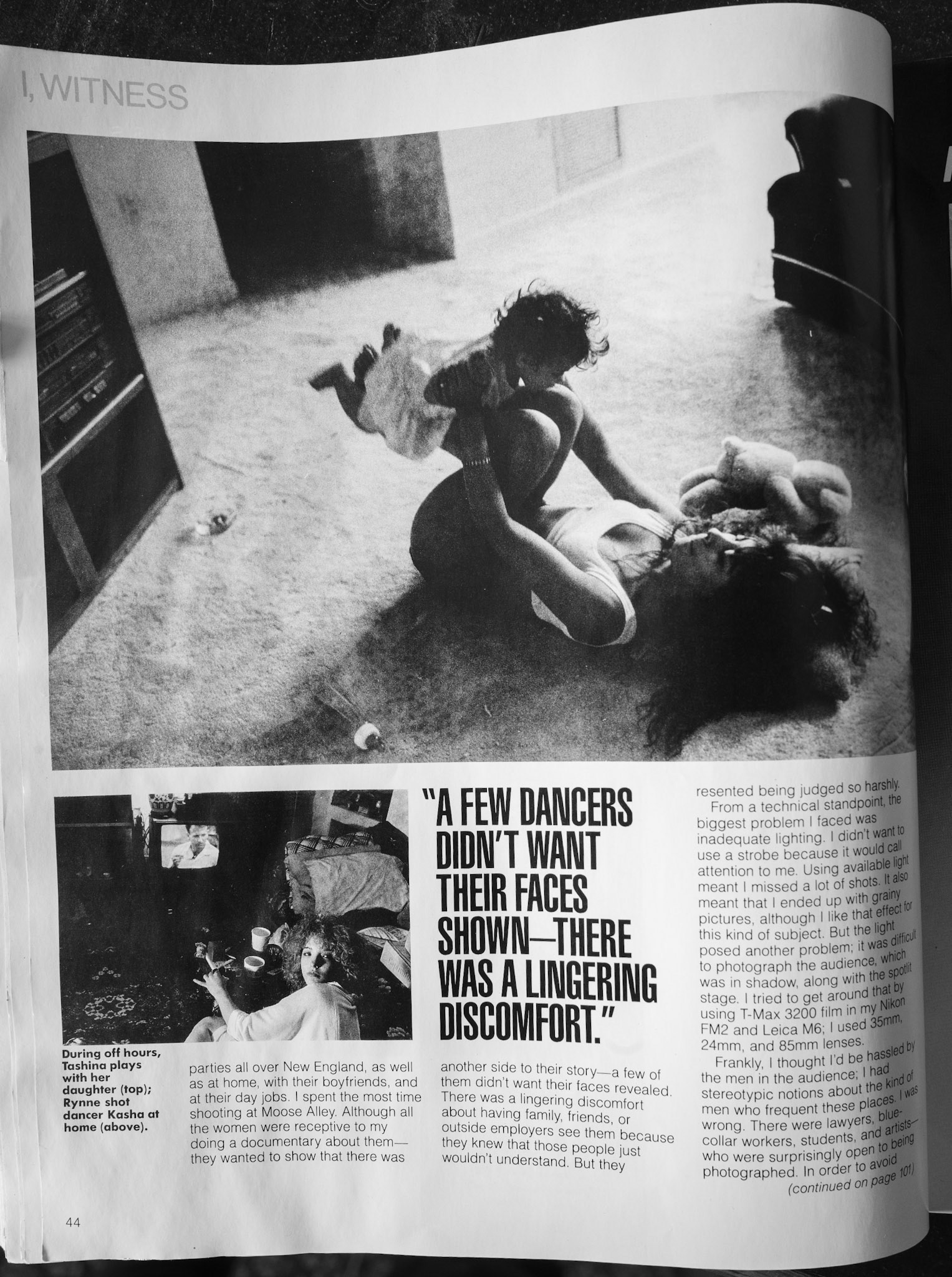
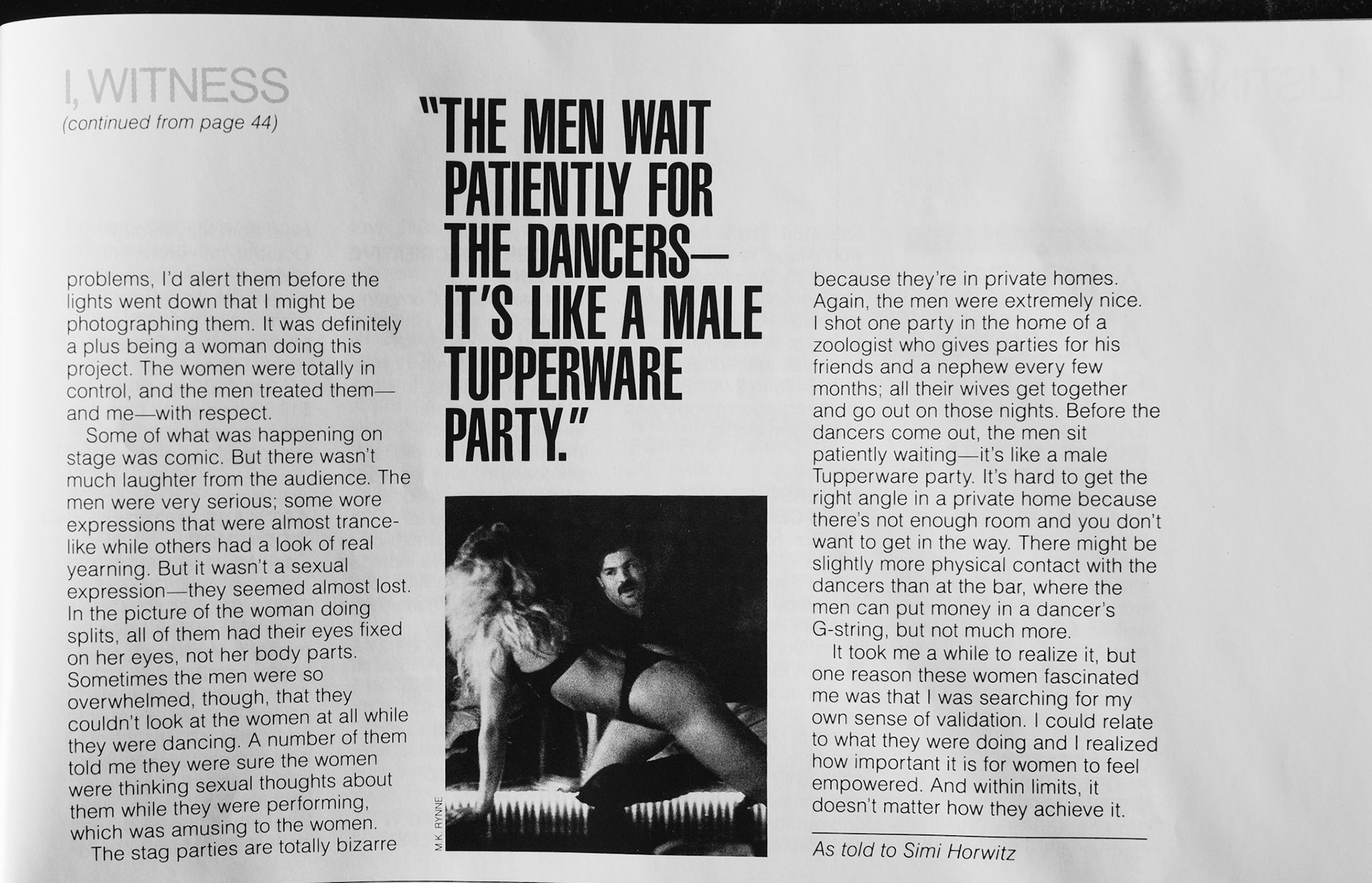
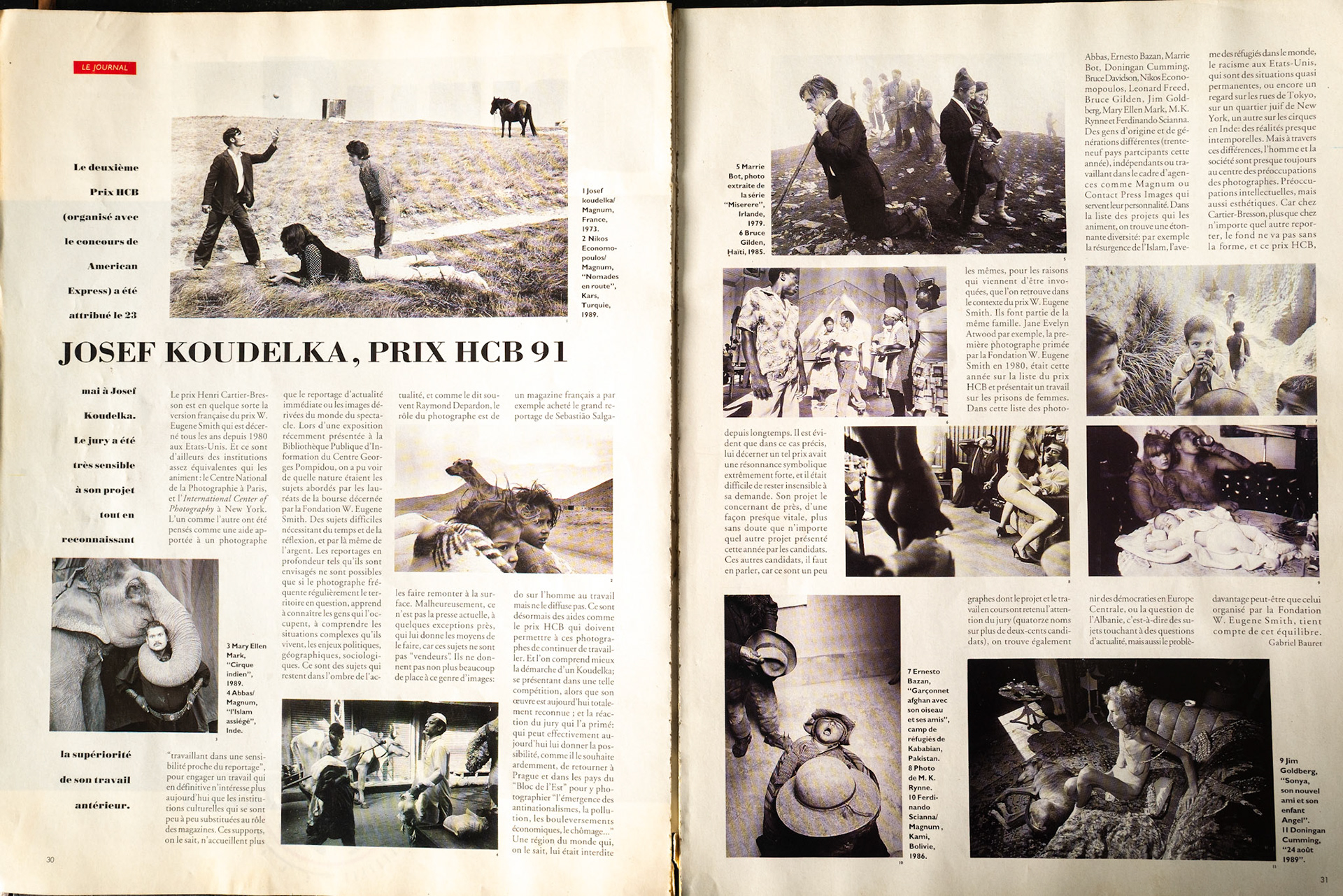
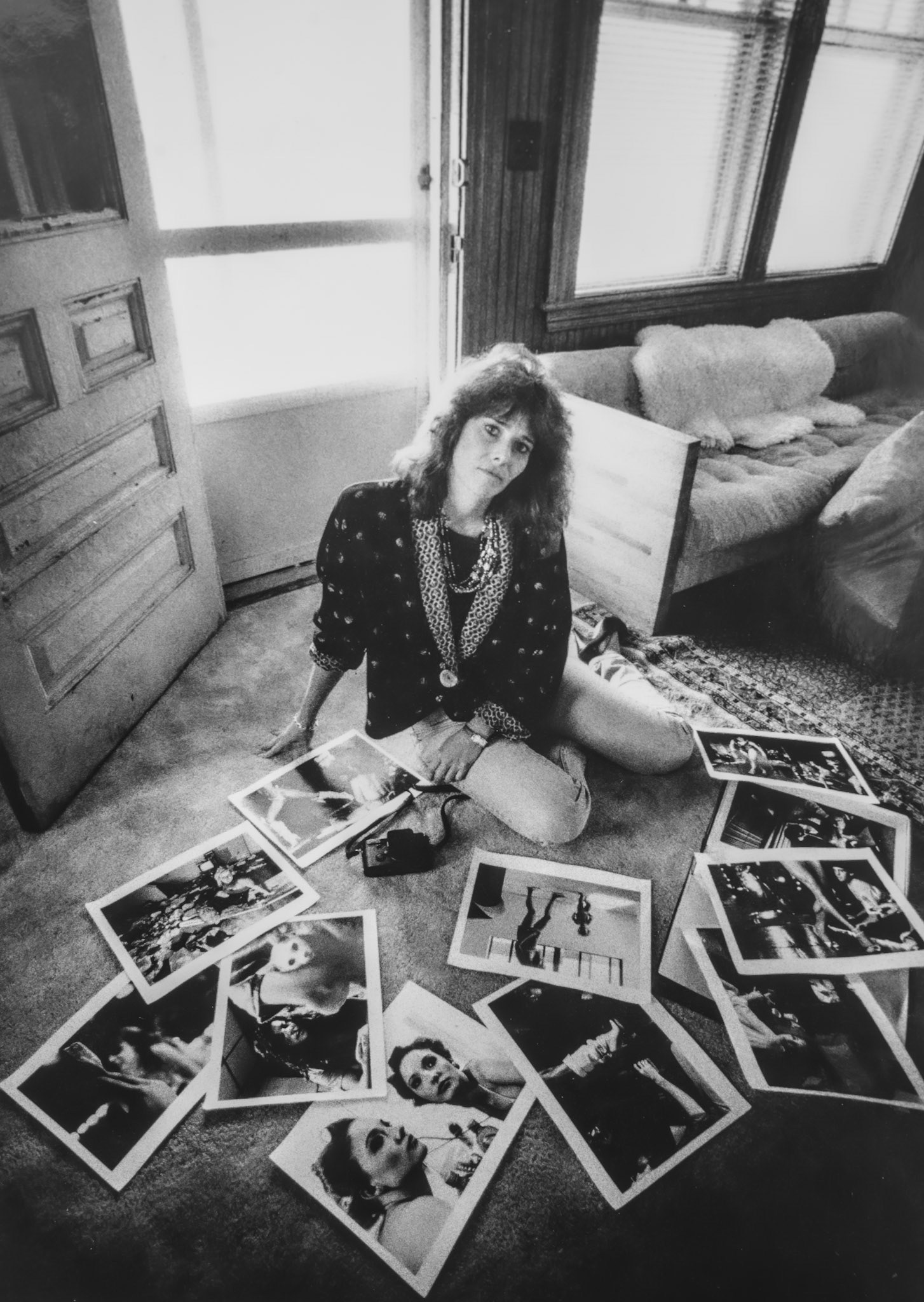
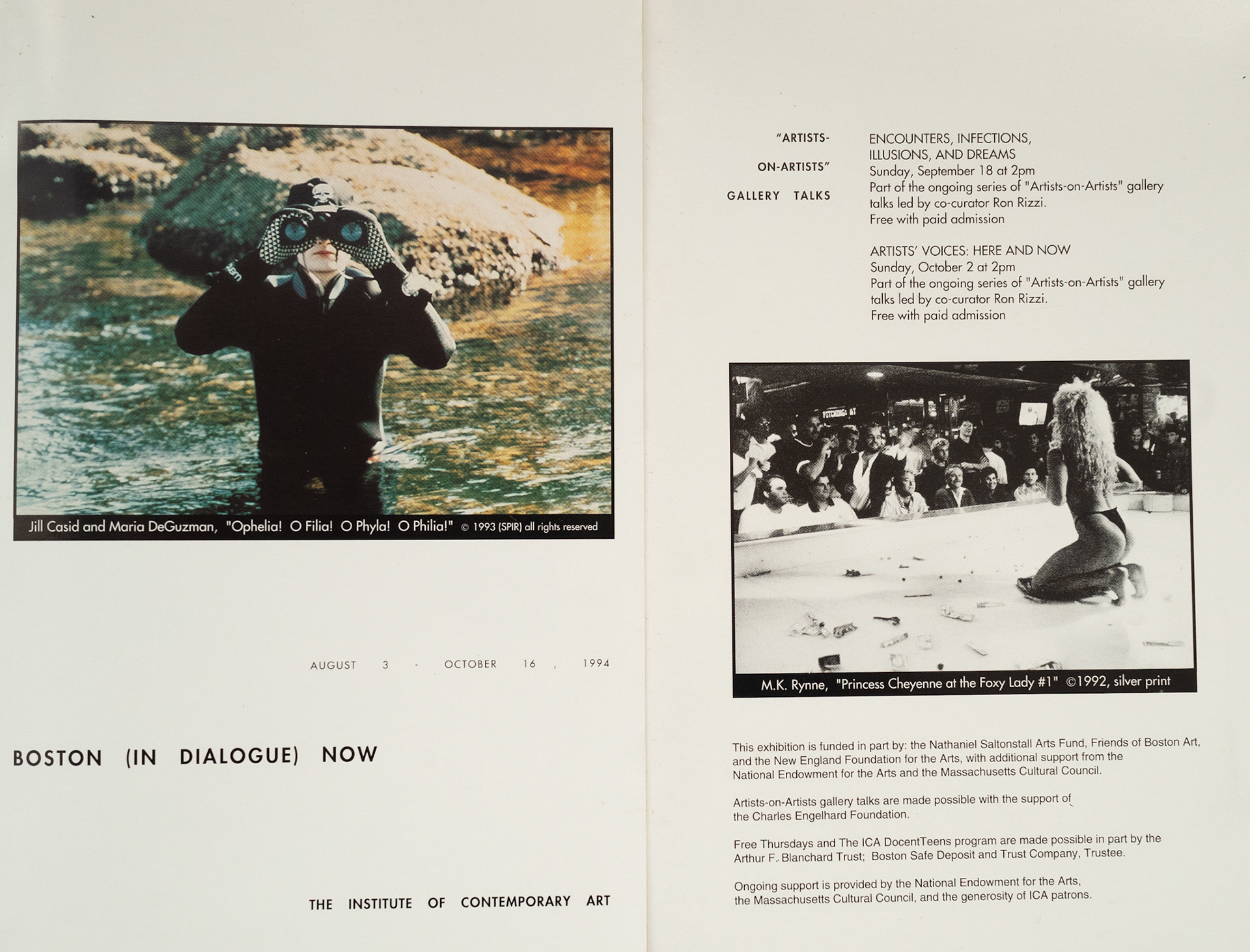

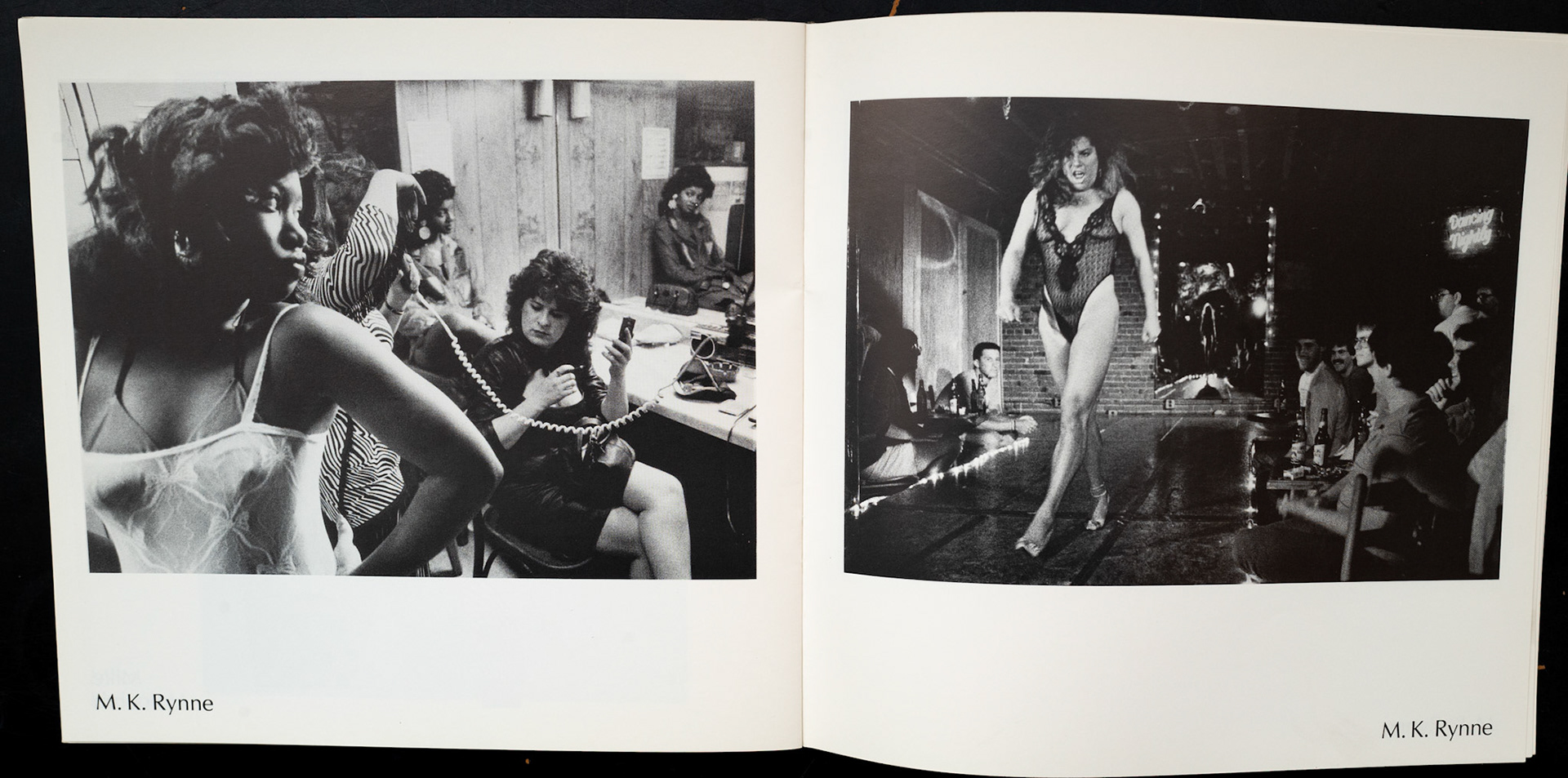
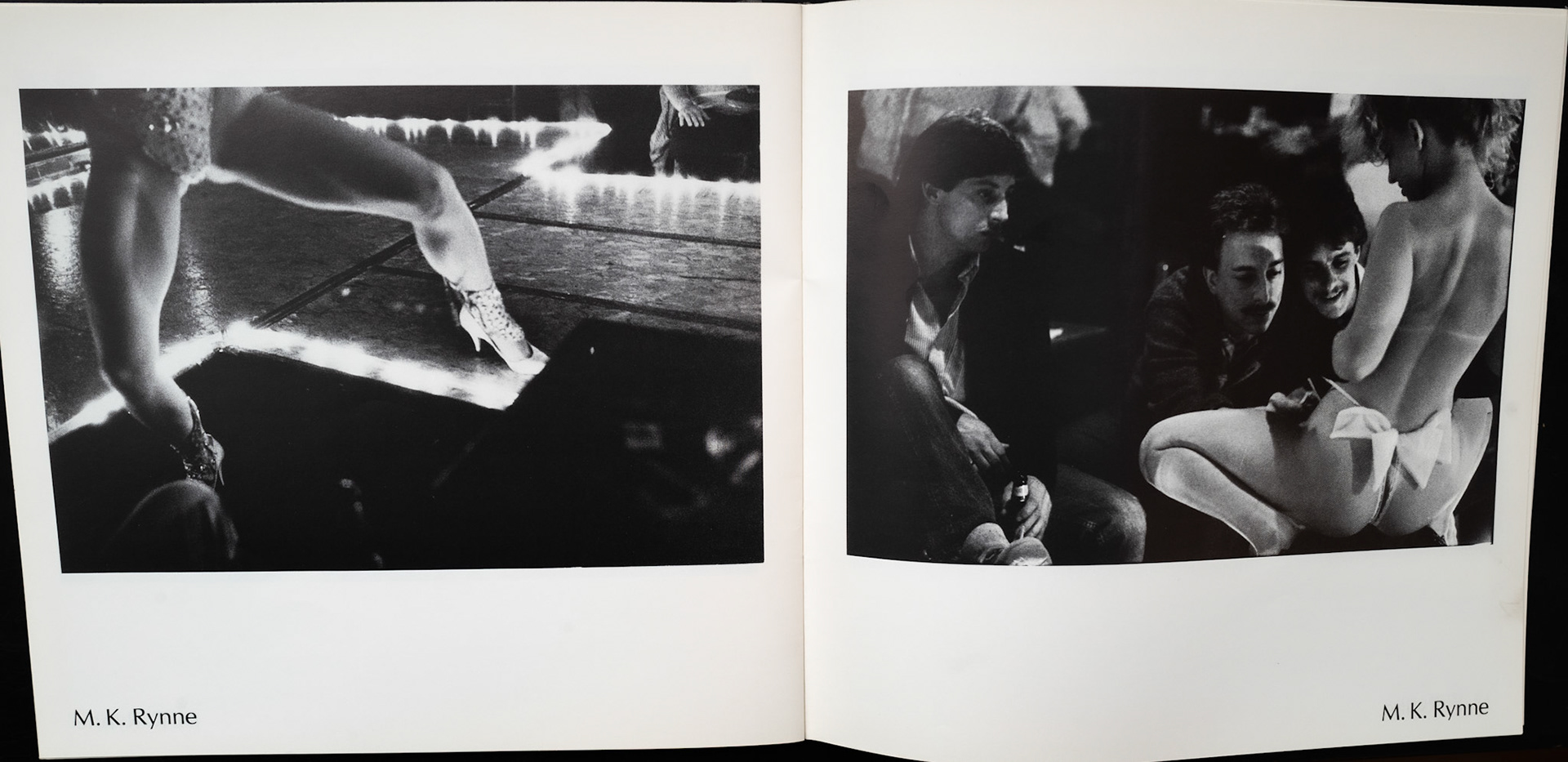
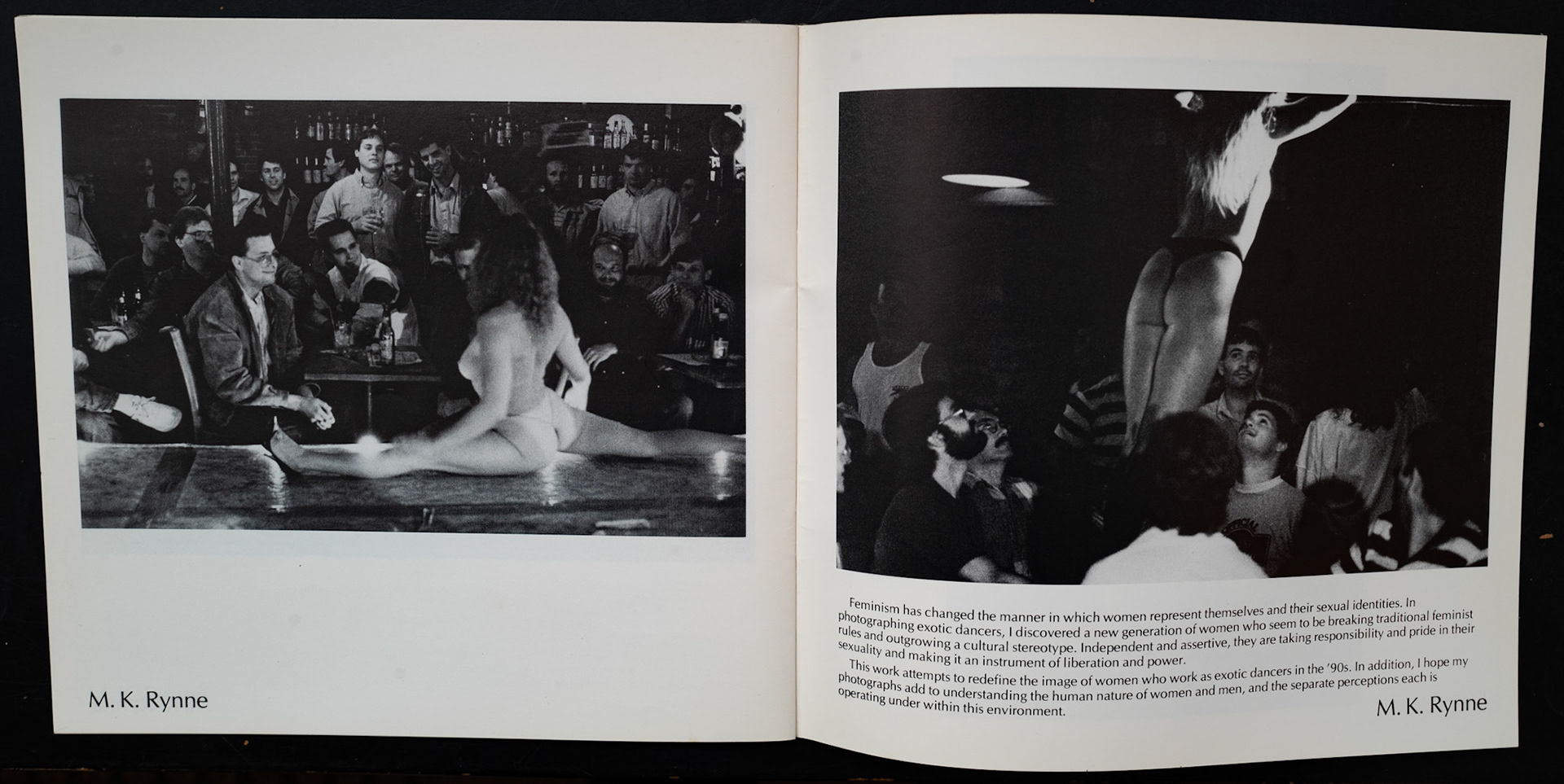
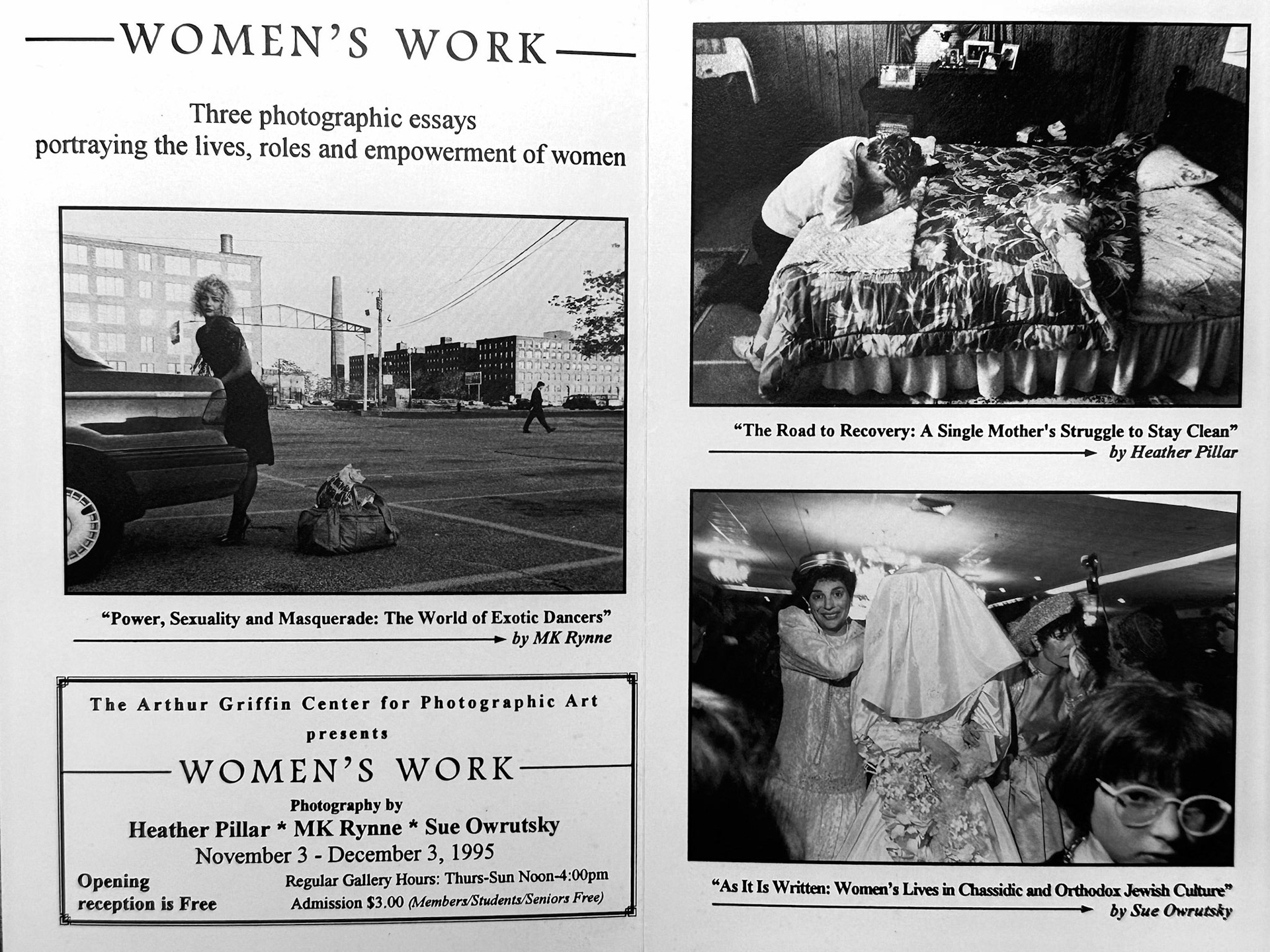
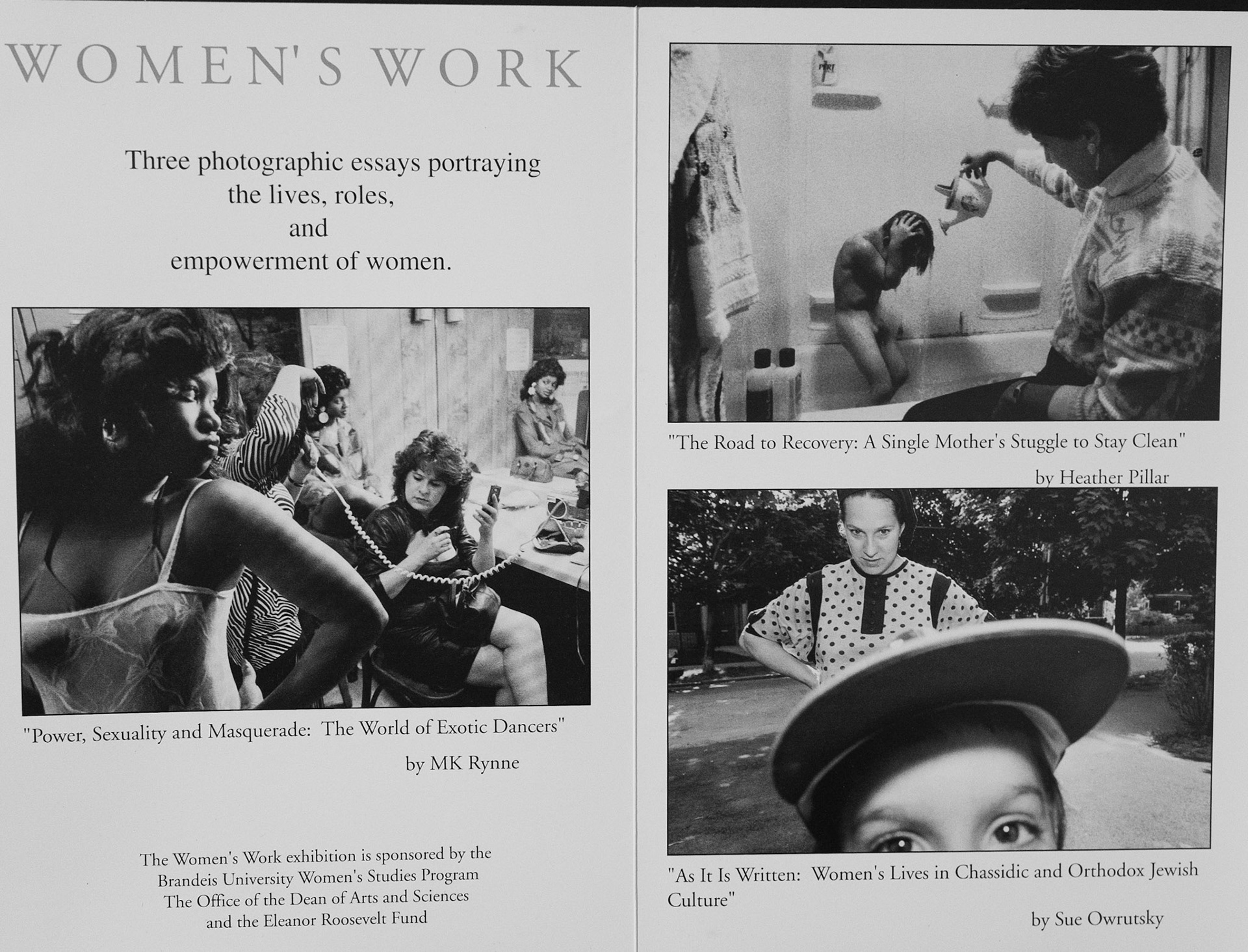

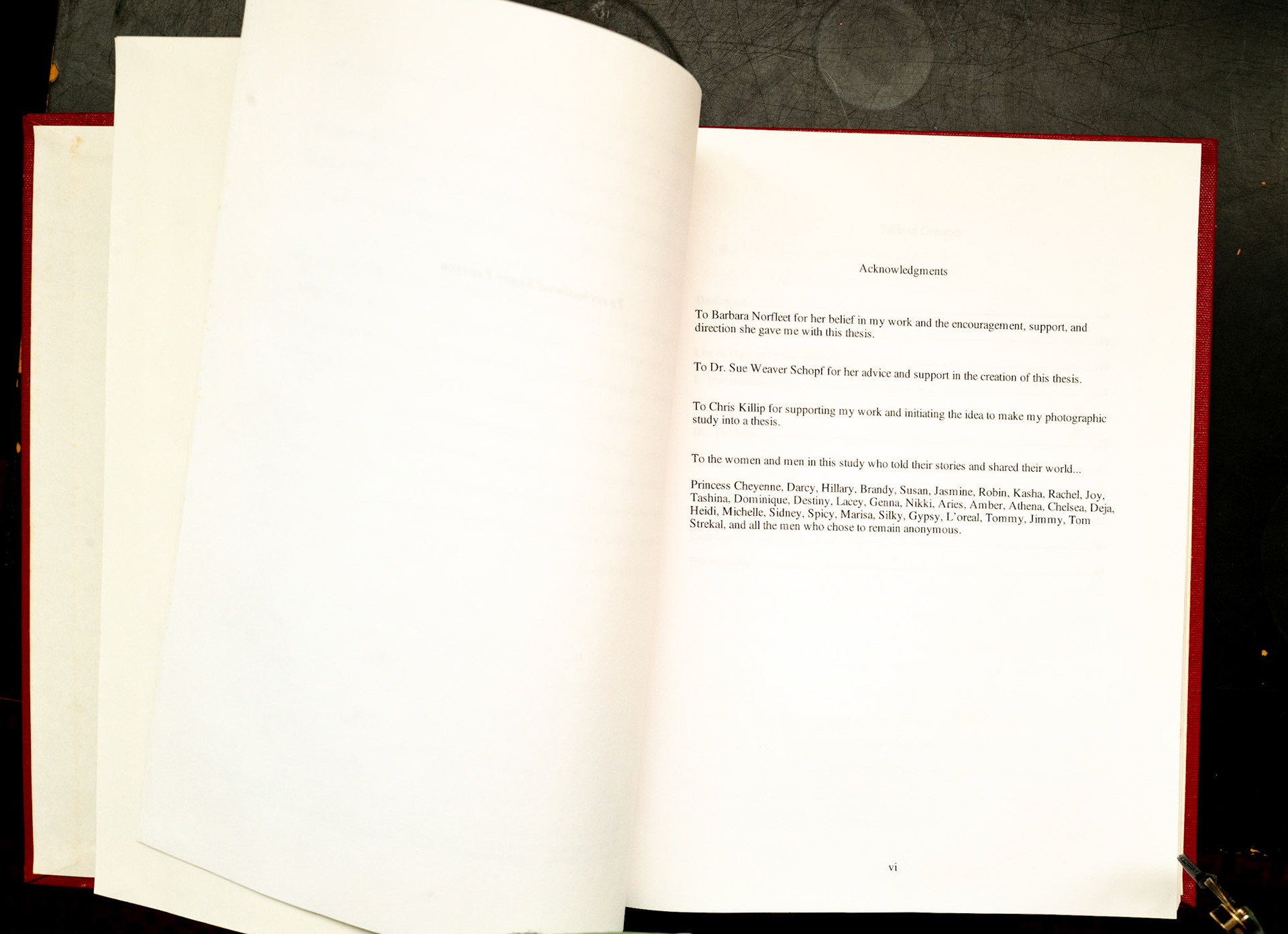
The Exotic Dancer Project is becoming a book, Stripped & Crowned: Through the Looking-Glass World of Exotic Dancers. It utilizes the logic of Lewis Carroll’s Looking-Glass world, where the ordinary is inverted to reveal deeper truths, to examine the flipping of power, perception, and gender inside the American strip club. This project invites viewers into a mirrored realm where women, often stigmatized in public, reign as sovereigns in private, commanding attention, income, and psychological authority. The project began in 1990 after an exotic dancer approached me for headshots. Her casual description of her work as "a fun, lucrative, and empowering way to make money" shattered my own unconscious assumptions. Over the following four years, I documented dancers across New England, moving between the neon-lit stage and the quiet domesticity of dressing rooms, dorms, and kitchens. These women were neither victims nor vamps; they were students, mothers, and professionals using the stage to fund futures and assert autonomy over their bodies. Through my lens as a female photographer, the dancer is reframed as subject rather than object. Here, the "male gaze" is not the dominant force; it is a tool the performers manipulate to "fleece" or "mesmerize" their audience. To amplify this agency, the project incorporates edited audio of the dancers’ own voices. These oral histories make the images come alive, allowing the subjects to reclaim their own narratives. My photographs intentionally reverse the gaze, capturing the "awe-struck" faces of men that subject Princess Cheyenne describes as "moosh balls" and "pathetic little creatures" under the spell of female agency. By freezing the audience in states of vulnerability and emotional exposure, the work reveals the club as a theater of subversive power. As Darcy, a mother and dancer, explains in the recordings: "I look right in his eyes... and he’s mesmerized because no one ever touches these guys.” Stripped & Crowned brings a historically significant body of work into contemporary discourse. At a moment when conversations about bodily autonomy and labor are again at the forefront, this project offers a nuanced perspective on the theatrical versus the human and ensures these women are seen and heard as the architects of their own world.
click box to play audio















